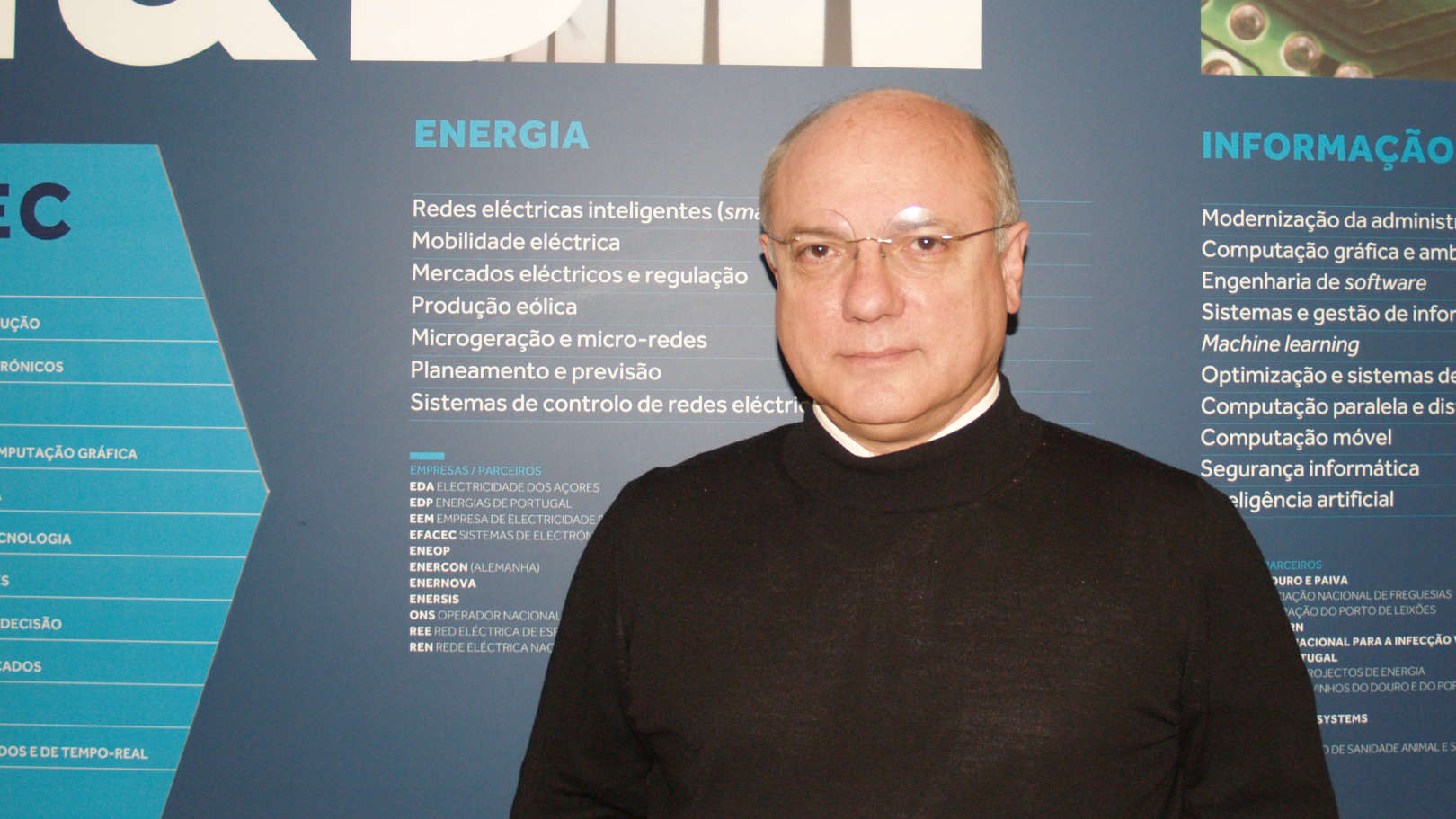Sobre
Vladimiro Miranda was born in Porto, Portugal. He graduated in Electrical Engineering in 1977 and received the Ph.D. degree in Electrical Engineering from FEUP, the Faculty of Engineering of the University of Porto, Portugal, in 1982. He joined FEUP in 1981 and joined INESC in 1985, a top R&D institute in Portugal where he came to be coordinator of the area of Power Systems during the 90’s.
He was a member of the Board of Directors of INESC TEC, Portugal - an R&D private non-profit organization recognized by the Ministry of Science and with the University of Porto as the main associate - for 18 years until June 2018, and holds presently the following responsibilities:
- Full Professor (Professor Catedrático) at FEUP, University of Porto, Portugal
- Director-President of INESC P&D Brasil, an R&D private non-profit organization with headquarters in São Paulo, Brazil.
- Associate Director at INESC TEC, International Affairs.
- Member of the Doctoral Council of UTAD (University of Trás os Montes e Alto Douro), Portugal.
He is International Scientific Advisor for:
- IRESEN, Agency associated to the Ministry of Energy, Morocco
- Hong Kong Polytechnic University, China
- Instituto de Investigación Tecnológica (Madrid), Spain
- Instituto de Energía Eléctrica (San Juan), Argentina
- Laboratory for Biologic and Chemical Defense of the Portuguese Army, Portugal
He was invited as Honorary Professor of the Novi Sad University, Serbia, and was President of INESC Macau, China. In 1996 and 1997 he stayed as Visiting Full Professor in the University of Macau, China. In 2005 he was Visiting Professor at the Federal University of Pará (UFPA), Brazil, and in 2015-2018 he was visiting researcher at the Federal University of Santa Catarina (UFSC), Brazil.
Prof. Miranda has been serving in the Administration Board of spin-off companies created within the INESC system. He has also served as research project evaluator for the governmental science organizations of Portugal, Norway, Croatia, South Africa, Chile, Brazil and Argentina. For the Government of this latter country, he acted as external auditor in the process of evaluation of research institutions.
He has supervised, co-supervised or cooperated in the supervision of a large number of PhD and MSc theses e power systems in several countries and universities such as in Portugal, Brazil, Argentina, Bosnia, China, Ecuador, Norway or Sweden.
He has been responsible for many research projects at international level, in the European Union, United States and Brazil, and has authored or co-authored over 200 publications, especially in areas related with Power Systems and the application of Computational Intelligence to Power Systems.
He has been a member (at times the chairman) of the organizing or scientific committees of several important conferences in his areas of expertise such as PMAPS, ISAP, IEEE Power Tech, etc.
Prof. Miranda is an IEEE Fellow.
He is the recipient in 2013 of the IEEE Power Engineering Society Ramakumar Family Renewable Energy Excellence Award.
He is a member of the IEEE Distinguished Lecturer Program.
Curriculum LATTES: http://lattes.cnpq.br/5824178098755298
Scopus Author ID: 35581693000 - AuthenticusID: R-000-HPD
(end)


